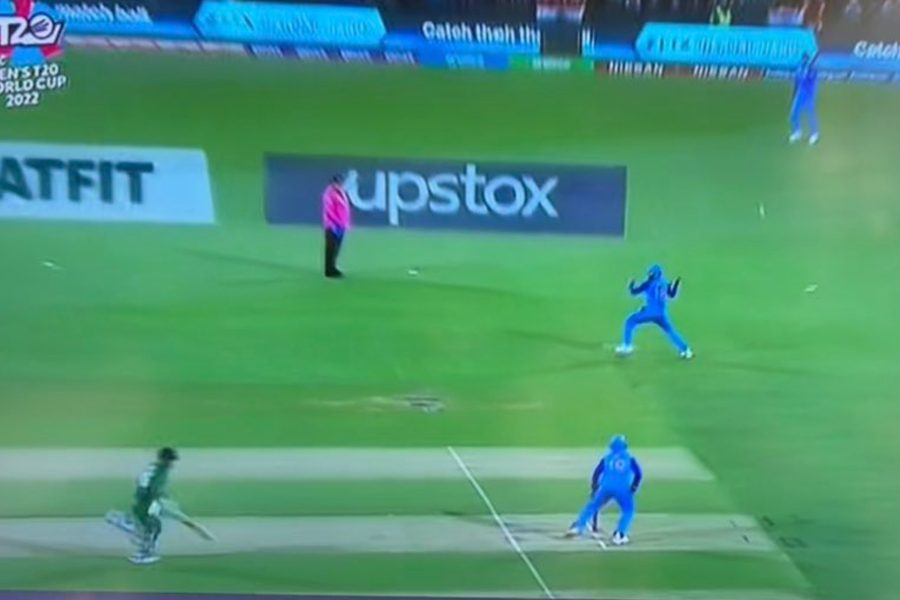
Virat Kohli accused of ‘fake fielding’ at T20 World Cup; here’s what law says

Virat Kohli has been accused of “fake fielding” by Bangladesh after India notched up a tense five-run victory in a Super 12 game of the ICC T20 World Cup 2022 in Adelaide on Wednesday (November 2).
In pursuit of 185, Bangladesh was cruising at 66/0 in seven overs thanks to opener Litton Das’ 21-ball half-century. However, rain arrived and broke the Tigers’ momentum.
Also read: A moment of magic inspires India
After the resumption, Bangladesh was chasing a revised target of 151 from 16 overs. With 85 more needed off 54, Das was run out after a brilliant direct hit from KL Rahul and the team lost its way.
Bangladesh’s Nurul Hasan, speaking to the media after the match, has claimed that the on-field umpires failed to notice a “fake fielding” incident by Kohli which could have resulted in the team getting five penalty runs.
Also read: T20 World Cup: Format, points system, reserve days, super over, COVID rules
“We all saw that it was a wet ground. Eventually, when we talk about these things, there was also a fake throw. It could have been a five-run penalty. That also could have gone our way, but unfortunately, even that didn’t materialise,” Hasan said.
The “fake fielding” that Hasan was referring to, happened in the seventh over when Das played a shot off left-arm spinner Axar Patel. With Arshdeep Singh sending in the throw from the deep towards the wicketkeeper Dinesh Karthik, Kohli, who was stationed at point, delivered a fake throw towards the non-striker’s end. Das and his opening partner Najmul Hossain Shanto completed two runs.
So this is what Bangladesh’s player, Nurul Hassan was talking about in the presser that umpires didn’t listen on fake fielding by Kohli. According to ICC rules, there should have been 5 penalty runs here. Bangladesh lost by 5 runs in the end. pic.twitter.com/3GdnuluQuH
— Hassan Cheema (@Gotoxytop1) November 2, 2022
Kohli feigning a throw went unnoticed by the on-field umpires Marais Erasmus and Chris Brown and the Bangladesh batsmen too did not bring it to their notice.
What does “fake fielding” law say?
According to the law “41.5 Deliberate distraction, deception or obstruction of batter”, “it is unfair for any fielder wilfully to attempt, by word or action, to distract, deceive or obstruct either batter after the striker has received the ball”.
Also read: T20 World Cup: Schedule, squads, groups, live TV, streaming, audio
If found guilty of “fake fielding”, the batting side will be awarded five penalty runs.
The law on “fake fielding”
41.5 Deliberate distraction, deception or obstruction of batter
- 41.5.1 In addition to 41.4, it is unfair for any fielder wilfully to attempt, by word or action, to distract, deceive or obstruct either batter after the striker has received the ball.
- 41.5.2 It is for either one of the umpires to decide whether any distraction, deception or obstruction is wilful or not.
- 41.5.3 If either umpire considers that a fielder has caused or attempted to cause such a distraction, deception or obstruction, he/she shall immediately call and signal Dead ball and inform the other umpire of the reason for the call.
- 41.5.4 Neither batter shall be dismissed from that delivery.
- 41.5.5 If an obstruction involves physical contact, the umpires together shall decide whether or not an offence under Law 42 (Players’ conduct) has been committed.
41.5.5.1 If an offence under Law 42 (Players’ conduct) has been committed, they shall apply the relevant procedures in Law 42 and shall also apply each of 41.5.7 to 41.5.9. - 41.5.5.2 If they consider that there has been no offence under Law 42 (Players’ conduct), they shall apply each of 41.5.6 to 41.5.10.
- 41.5.6 The bowler’s end umpire shall Signal No ball or Wide to the scorers, if applicable, award 5 Penalty runs to the batting side, inform the captain of the fielding side of the reason for this action and as soon as practicable inform the captain of the batting side.
- 41.5.7 The ball shall not count as one of the over.
- 41.5.8 Any runs completed by the batters before the offence shall be scored, together with any runs for penalties awarded to either side. Additionally, the run in progress shall be scored whether or not the batters had already crossed at the instant of the offence.
- 41.5.9 The batters at the wicket shall decide which of them is to face the next delivery.
- 41.5.10 The umpires together shall report the occurrence as soon as possible after the match to the Executive of the offending side and to any Governing Body responsible for the match, who shall take such action as is considered appropriate against the captain, any other individuals concerned and, if appropriate, the team.

